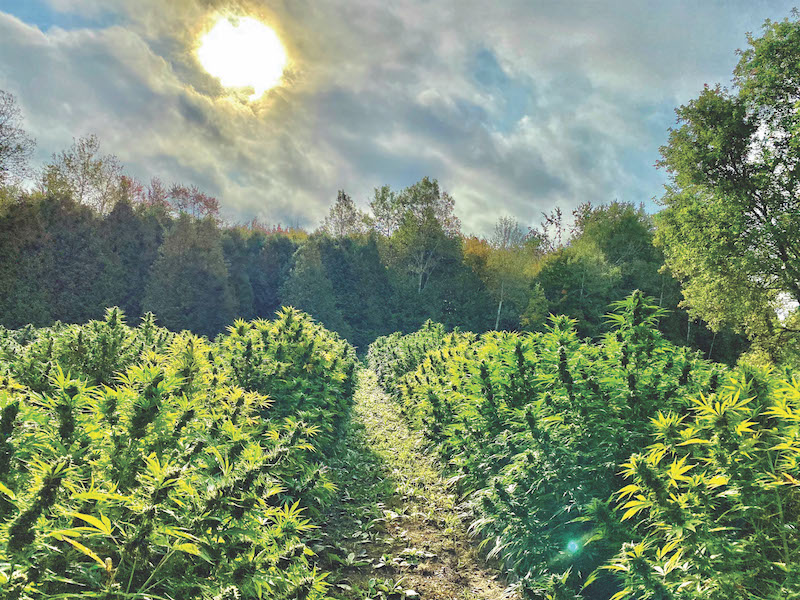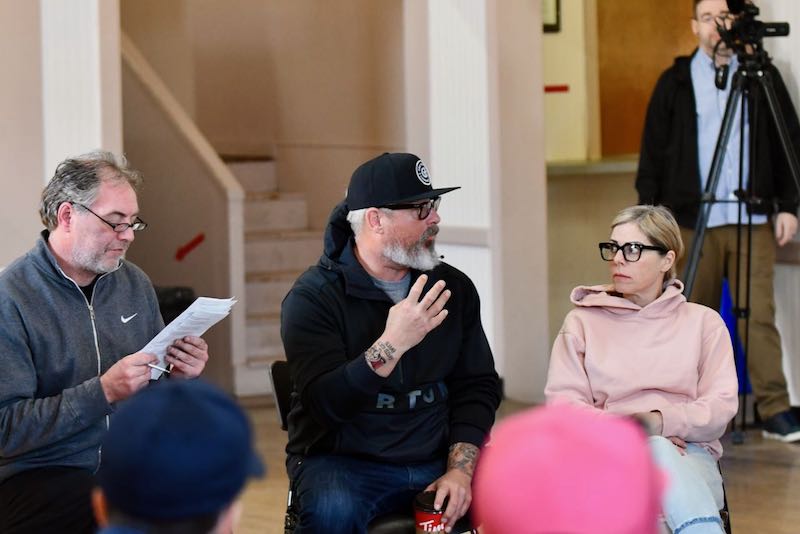Features
Sustain-inability? It’s not easy being green in cannabis
Published on August 12, 2022 by John McDonald
 Photo: Contributed
Photo: Contributed It wasn’t that long ago that sustainability in the cannabis sector simply meant not getting busted. But legalization has shown that for more and more people, sustainability is the product.
Words spill out of Mika Unterman like they can’t quite keep up to her thoughts, focused as they are on sustainability in cannabis packaging. She gives an entire interview while walking her dog.
“The regulations require opaque plastic which has a lower material conservation rate,” says Unterman, recounting how government regulation contributes to excess packaging, despite the best intentions of producers.
“Then there’s the smell-proof requirement which means you have to apply an additional shrink wrap layer to make sure you can’t smell it,” she adds. “Also then there’s the fear behind the child resistant packaging requirement which is double the price. No company in their right mind is going to go out of their way to do that if they don’t have to.”
Unterman’s company, Apical Ethical Cannabis Collective, is a management consulting firm specializing in the concept of the circular economy as it pertains to cannabis.
“We have a vision of a more inclusive, sustainable and socially responsible industry,” she explains. “Our mission is to promote the adoption of non-financial capital management to increase transparency and accountability in the industry.
Our circular economy products make measuring and managing social impact simple and profitable.”
On a more tangible level, Unterman has ideas about consumer-level cannabis packaging, specifically the ubiquitous black plastic she says is considered the “devil of the industry.”
“It’s the problem child. It has a high contribution to the waste stream that goes straight to the landfill,” she adds.
That’s where the circular economy comes in, things that are already in use that you can prevent from going into the landfill by reusing it multiple times.
“Essentially, it means getting people to bring it back so we can refill it.”
For Unterman, sustainability is an absolute selling point.
“It’s not just a price, it’s all this information about this product that makes me feel good about my purchases,” she says. “It’s about creating loyalty through sustainability. It’s about that data and how to get it right in front of them at the point of purchase, even if it means showing them on a strain card.”

Willing to pay the price?
Sustainabilty goes hand in hand with the craft cannabis sector, if David Hurford has anything to say about it—and part of that might mean paying a bit more for the quality and associated costs.
“If it’s a premier product, consumers will pay more for the heart and passion put into a product,” he says. “If you put two products in front of someone and told them the one on the left is grown by a farmer from down the road who’s raising a family and the one on the other side, well, that’s corporate, which one are you going to pick?”
Hurford is the volunteer secretary of the BC Craft Farmers Co-op, a group he says numbers a couple of hundred licensed medical and micro-growers and those in the process of applying.
“Sustainability is two things. There is financial sustainability as well as the basic sustainability of this planet,” Hurford says. “If it’s financial, are you able to open your doors, pay your workers, feed your family?”
What’s missing is government support for the nascent cannabis industry, he says.
“The government has poured over $100 million into those big cannabis corporations but we’re seeing them closing still,” he adds.
He says the small-batch cannabis production most of the group’s members engage in, plus the surging costs of production, means at least some aspects of sustainability are borne of need.
But it’s time those costs and others should be considered an investment in the cannabis industry and given government support, Hurford argues.
“How about a sustainability grant to green your operation? How about an increase in canopy area for the micros so they can be competitive?” he asks.
With proper support, Hurford says micro-processing operations could help sustain rural communities facing reductions in forestry and mining employment.
“We grow some of the best product in the world here in BC,” he says. “Craft growers from all over the country acknowledge BC has something special. When they talk about cannabis in the world, we already have the BC bud brand. People already think about BC when they think about cannabis in Canada.”
 Photo: Contributed
Photo: Contributed Taking steps to be organic
It’s not easy being green. Just ask Andrew Baukham about what it takes to produce 500 kilograms of organic hemp on a farm near Guelph, Ont.
One of the biggest hurdles was that his company, Leven Therapeutics, could not find an organization that would certify their processes as organic. That still didn’t stop them.
“We decided we’re not going to be just a quasi-certified organic company,” he adds. “We’re going to take all the steps to ensure that everything that goes into these farms is just as good as organic certified. It has not been an easy process.”
That included extensive soil testing, cover cropping, living soil for potting and transplanting, and integrated pest management using beneficial insects to combat known cannabis scourges, such as aphids and mites.
The company both pays more and spends more time seeking out the best options in such things as compostable packaging and nutrients that meet organic standards, Baukham adds.
“It hits the bottom line,” he says. “All our inputs are more expensive. I just spent a couple of thousand dollars on something I could have spent $200 on for something off the shelf.”
Leven also demands ethical production from its suppliers. “Everybody we work with has to have some sort of organic or sustainability piece to them,” he says. “It has to be beneficial to the planet. There has to be some care for what they are putting out.”
Baukham says the increased costs associated with sustainable production are not viewed as a liability but rather as a selling point, one of the reasons to buy his product.
“It may be a very small segment, but we rule that segment,” he adds.
Featured in Volume 2, Issue 2 of the oz. magazine
Leave a comment on our Facebook page.
© Copyright 2022 Okanagan Z. | About the oz.
Report a Typo or Inaccuracy
We strive to avoid typos and inaccuracies. However, on occasion we make mistakes. We value your contributions and help in correcting them.